Carly Nelson has made a name for herself as a standout goalkeeper for the Utah Soccer team, but she has known adversity in her life. After dealing with a new challenge this past year, one that threatened her life, the senior sat down to discuss a health scare that she lives with every day, growing up in Utah as a lesbian and the positive impact she hopes to have on her friends, family and others.
Carly, can we start with what you have been dealing with recently regarding your health?
I would say it started around Christmas. I went in to the doctor with tooth pain. They took a panoramic photo of my mouth and found an infection in my jaw that had wrapped around the nerve. The only way to get rid of it was to get in there, remove the tooth and infection. There was a complication because of how big the infection was since it wrapped around the nerve.
In January, I went in for surgery. The doctors had to be careful because if they nicked the nerve or did damage to the area, there was a chance of paralysis to my face. So obviously, that was a concern. They were able to get a majority of the infection out, but not all of it because they were worried about that damage to the nerve.

What happened during your recovery from that surgery?
For a month, I was in a stage of not knowing. At the end of April, beginning of May, the pain came back so I thought ‘is the infection still there?’ We did another panoramic photo and an MRI to see that there was still some infection there. They told me they needed to take out part of my jawbone.
I had the surgery to remove part of my jawbone because they said they would get it all out this time, all the tissue, without hitting the nerve. The surgery went fine, but four weeks later, I was still in pain and it was not getting better. I did not know what to do. I saw a specialist in Salt Lake City and was told almost immediately that I have a bone disease called osteomyelitis. The doctor said that I needed to get it taken care of before it spread because it would move quickly and could kill all the affected bones.
This was not the first time you experienced pain in your jaw, what happened previously?
It all started with a root canal I had in high school and then two years ago, I was incorrectly diagnosed with Bell’s palsy. Then based on what happened these last few months, I learned that the infection developed from the root canal and got worse over time. I was told that developing an infection from a root canal is common but since it went untreated for so long, it affected the bone and spread into osteomyelitis. It was strange because after the root canal, I had no complications until the pain in December.
I thought I was in the clear and there would be no more problems.
How did you treat your condition?
The way to treat this disease is through intravenous antibiotics over a six- to eight-week period until it is gone. You have to administer drugs daily, so I got a PICC line put in so I could do it myself. I had to do it every day for 30 minutes from home so they would not have to keep poking me. I went to the hospital to get my PICC line, which was super easy. They made a small incision in my left arm because I wanted to keep playing soccer and needed my right arm. The line goes from the incision to the right atrium in your heart, right into that vein that travels directly via the bloodstream.
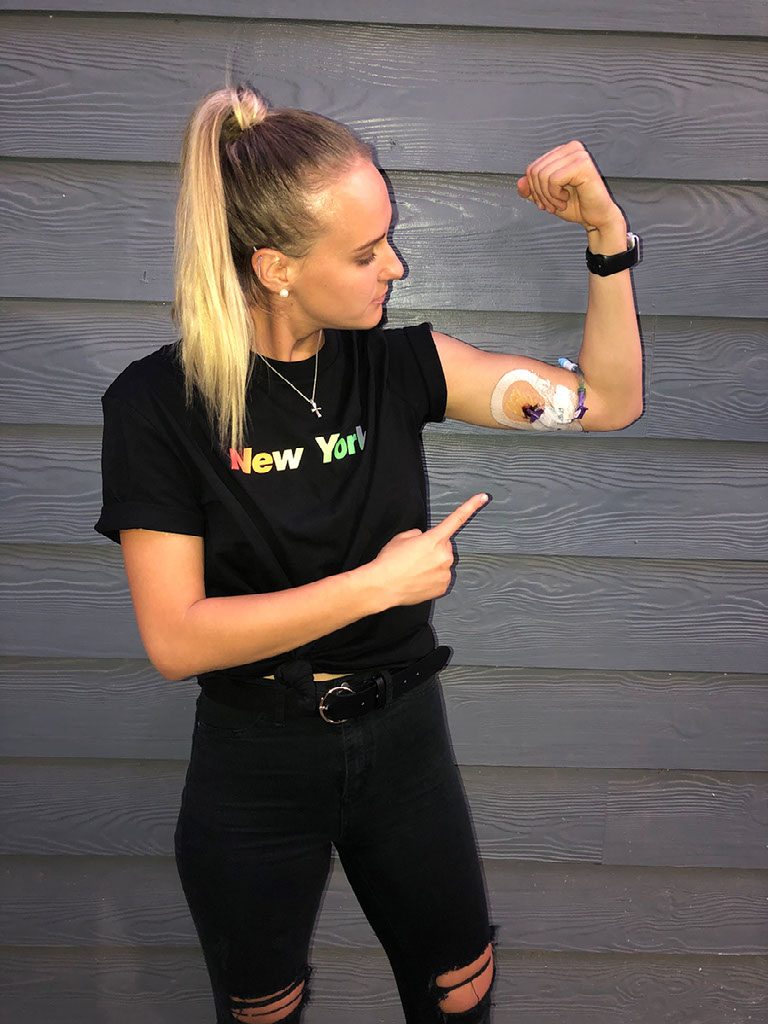
Each week I had to go in and get my blood drawn anyway to make sure I was safe from other infections. I had to get my dressing changed because that created an infection risk. I would pick up my medication for the week and give myself the drugs every day for half an hour. For six weeks, I did everything at the exact same time. I did this from the time I was diagnosed to three days before fall camp with Utah Soccer, so the whole summer.
After you started with the IV treatments, what was that like?
When we first started talking about the disease, moving forward, I asked what precautions I need to take? The doctors said I could not do anything with this one arm for six weeks. I had to rest. No repetitive movements because the danger of infection or blood clots was very high. That meant no swimming, golfing, weightlifting, because of the threat of blood clots.
Mentally, I thought this is my senior year and there is no way I am not making the most of it. I worked so hard last year and all summer, I cannot give up.
I thought this whole process was annoying. At first, I was sad and worried that this would have an impact on me and set me back, but I got my PICC line put in and just decided to go for it and see how it felt. Again, that is why I decided to have the incision in my left arm.
With this going on, what was your typical day looking like?
I took 16 credits this summer while dealing with all of this. I played for Utah Royals FC, trained three times a week, and then combined it with conditioning and training for Utah Soccer. I would wake up at 6 a.m., eat, meditate, take a cold shower, go to soccer practice in Sandy from 8-9:30 a.m. drive back to campus, take part in Utah conditioning around noon, come home, do homework, take my medicine at 3 p.m. and by then, I was beat. I would chill out and read for class for the rest of the day.

You must have been tired from all the activity and then you add the medication, how were you coping?
The antibiotic I had to take, Ertapenem, was very strong, and it honestly, took the life out of me. I woke up and felt like I was on a cloud for six weeks. I was so tired and drained. I would get 10 hours of sleep and still wake up tired. I would administer my drugs and be tired again. In the end, I figured it was just fatigue. It was something I could handle and push through.
Early in your life, you dealt with another pivotal moment that helped make you stronger, can you go into some detail?
I was super young, maybe seventh grade. I came out to my best friend and it did not go well. It spread around high school and I was bullied. It was really hard. I was isolated. My siblings were out of the house and I could not talk to anyone. I did not have friends that agreed with who I was. I kept to myself and there was no escape then.
I had no one to talk to and my parents did not accept it. The people around me did not understand. I was in ninth grade and I thought if this is how it is going to be the rest of my life, I refuse to live this way. I tried to commit suicide.
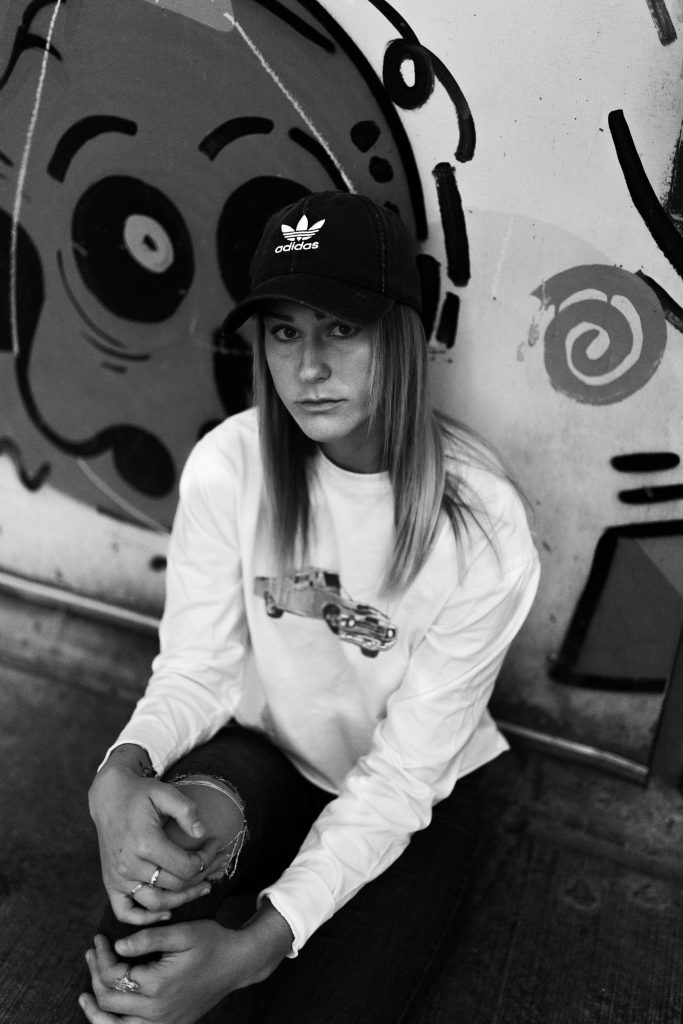
I am comfortable talking about it now. Many people go through it and do not make it out alive.
Your parents did not accept it—what was that like?
I came out to my parents during my first year of college and for a couple of years—you have to understand, I come from a very religious background and my parents are very invested with the Mormon church—they did not understand or agree with what I was ‘choosing.’
They thought it was a choice. That I was going against them. So for two years, we had a falling apart. They cut me off. We were not talking.
Everything has changed now. The past year-and-a-half, we have become super close. They are my best friends now. I want people to understand and see that even through everything that has happened they have remained my family and we love each other unconditionally.
[Best_Wordpress_Gallery id=”63″ gal_title=”Carly Nelson”]
What helped you during that time?
I put everything into soccer and that was my escape.
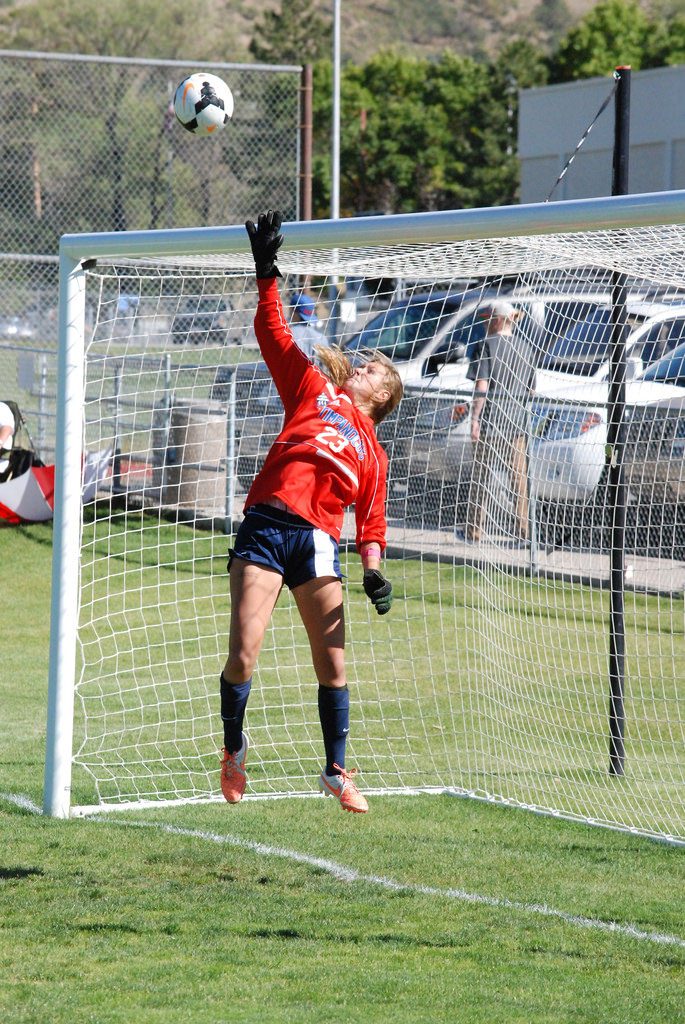
I found my love and comfort there. That was my meditation and release.
I just decided to step away from anyone I knew in high school. It was so negative. They have different beliefs than I do and I did not know if their belief system would change. I know they still love me as a person, but deep down, I worried about the judgment. I cut those people off and have found people here at Utah that love me, respect me and adore me for who I am.
I have two friends from high school, one, her brother is gay and so she is cool with me now. She was always kind to me but it always felt weird to me. A lot of that was probably me because I did not know how to handle my own feelings. If I see her, we are kind and we talk from time to time.
How have you found the environment on campus?
Utah’s environment is very open, loving and accepting. This is the school for me and anyone of my sexuality. I have never had an issue with anyone being rude or disrespectful on my team or at this school. Everyone is open, loving and supportive.

I was unhealthy and had negative thoughts that almost led me to end my life. I wound up in the hospital and I am grateful I did not commit suicide, but if I had the resources, people to talk to, people who advocated for me, I doubt I would have been in that position to begin with.
I am a huge advocate for LGBTQ people because they may not know how to deal with it. College is tough. People are away from home, struggling without their families, coming from a different racial background—if resources are readily available, it makes things easier and pushes them away from a negative outcome.

I think the resources at Utah are incredibly important and useful. They are there when you need them. I am a big advocate for mental health. I am an ambassador and meet weekly to talk about mental health issues and how we could provide more resources for student-athletes. Could we have events that shine more light on mental health? I am all for it.
What about with your physical ailment? How has Utah helped you?
Even if I did not have this bone disease, if I tweaked my toe, someone is there for whatever I need. The support and love is at your fingertips and it is an amazing feeling
I think the U does a nice job and has some of the best resources for any issue a student-athlete has. I have never encountered or heard of a problem facing a student where they feel they do not have support. I do not know about other schools but from what I hear from other student-athletes,
I think the NCAA has done a nice job handling the increase in mental health issues. Resources are more available and people are pushing for them.
Going back to self-help, you spoke about meditation, how has that helped you through some difficult times?
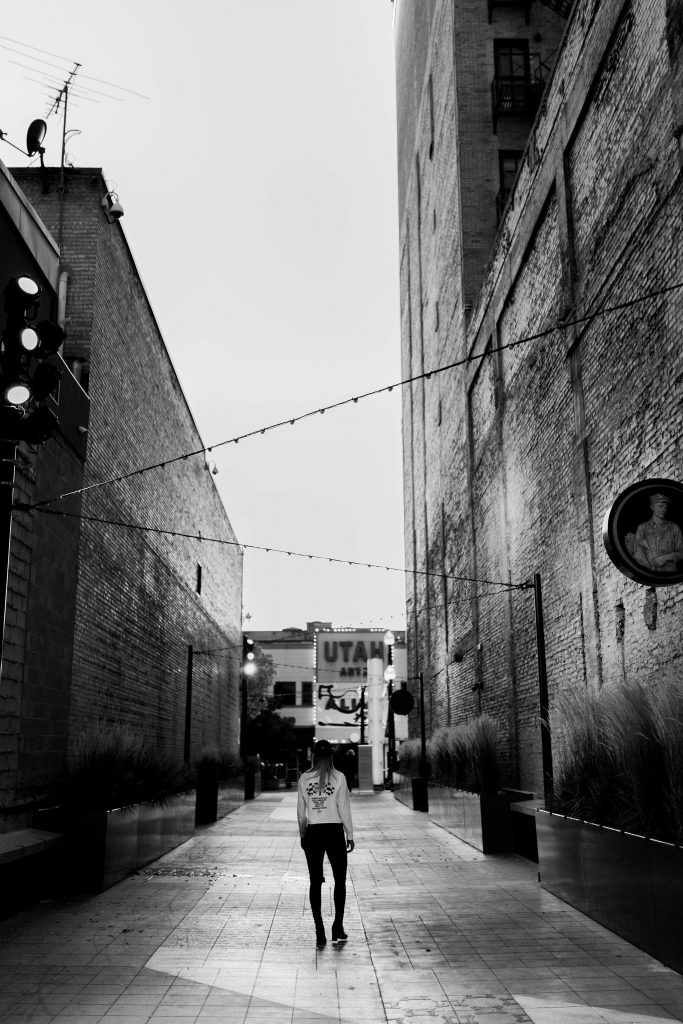
It calms me down and allows me to center myself. I have a life-threatening disease and it can come back. It can go bad. Many cases do. Meditation keeps me centered and grounded. It keeps my mind from wandering. That helps in general because I have less stress and anxiety and I am not creating things that make my body react negatively. It helps my body heal more
Can you give a more specific example of what you do that helps?
I do a few different things, based on my day or where my head is at. I do Kundalini, that involves breath movements that help reenergize you. I do two minutes of gratitude. I think of three scenarios that I am grateful for, little or big, and do a visualization of healing myself. Sending a white light and spreading it to others. I will picture energy, and it sounds so hippy, but it works. I visualize a pearl coming down through my head, through my body and down into the earth and circulating back up.
I repeat the words—healing, self, strength, celebrate, serve—whatever I feel that day and energizes me. Then I will do five minutes of visualization of three things I want to accomplish every morning. If I am really stressed or my head is wandering and I cannot focus then I will use Headspace and do mindfulness exercises. No visualization. I will just try to center myself, catch my thoughts to see where I am at.
I also started doing my own therapy, writing. I started a book, just writing about my experiences to talk about it and get my emotions out. I talk to the paper and get it all out there and hopefully, someday I will be able to construct it in some way to help people.
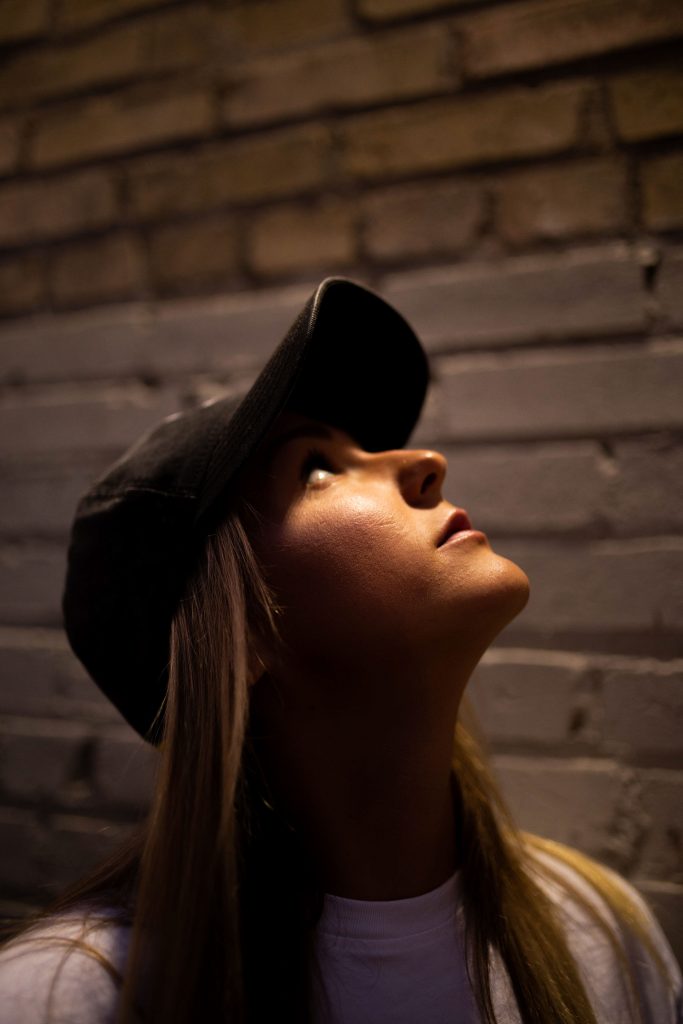
I think a lot of folks lack perspective and I want to let them know what it was like. I want them to realize this is an issue.
Writing comes naturally to me, and I like conversation. I am terrible at art. I cannot do it. I sing. I play guitar and piano, self-taught, but writing is something I can do wherever and whenever. I get more out of it.
What advice would you give to someone who is struggling?
The thoughts you pay attention to are the ones that create your life.
It does not matter what happens to you in life, it matters how you respond. Anything can happen. Someone can die, you can realize you are gay, you can have a life-threatening illness, or you can be in a car accident and be paralyzed. You cannot control that. How you think and perceive things can be for the greater good or the worst thing that ever happened. How you perceive things will take you where you want to go.

